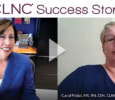Three weeks ago I bought and installed a larger, faster hard (disk) drive for my laptop. The old drive sat safely locked in a desk drawer waiting for disposal until last Friday. That evening I took it home and hammered it to death in the street while one of the neighbor’s kids watched.
Not all legal nurse consultants have the energy or inclination to take their tech support issues out on an innocent hard drive. Other than taking it for a one-way boat ride in your cousin’s sailboat, how do you dispose of an old computer or drive?
We all store so much information on our computers that it can be scary when it’s time to dispose of the old one. Whenever you give (or throw) away a computer, the entire history of that computer and its users goes with it. Bank records, case reports, photographs, passwords and even military secrets are all-too-often still present on a computer that’s been disposed of improperly. Even legal nurse consulting files and folders can be easily recovered by anyone running readily-available software. Files that have been partially overwritten can be recovered and repaired, depending upon the extent of their “destruction.”
What steps do you need to take before disposing of your old computer? Unless you physically destroy the hard drive, (please don’t drop it in the ocean!) it will always be possible to recover some data from it. If you are giving the computer away, whether to a charity, friend or even to a recycling agency, we recommend that at the very minimum you take the following actions:
- Delete all documents, mail messages and data files.
- Uninstall any programs, applications or other software that is licensed to you personally.
- “Sanitize” or “scrub” the remaining empty space on the system’s hard drive.
- Reinstall the Windows operating system or give the next owner the “system restore” CDs to either reinstall the Windows operating system or to return the computer to its original configuration (if you’re simply disposing of the system there is no need to restore it).
If you do not want to do this yourself, there are independent companies that will dispose of your computer, either for free or for a small fee. Before you trust your old computer to one of these companies, make sure you ask the right questions. Determine how they will ensure that your data has been “scrubbed clean.” Are they scrubbing or degaussing? Ask how or where they actually dispose of the computer. They may be shipping it overseas for sale, they may be “parting it out,” donating to charities or even attempting to recover data themselves as an illegitimate side business. Check to see if they’re registered with the Better Business Bureau. Since you don’t know where it’s going to go, it’s always preferable to “wipe” your computer down to nothing and then “restore” it yourself prior to giving it away.
If you choose to “scrub” your old hard drive yourself there is software available that does a very good job. Not only can it scrub your data, some of these programs can achieve “governmental” levels of data security. These programs work by overwriting the portions of your hard drive containing either nonessential data or the entire hard drive. Depending upon the level of data “destruction” you choose, they may overwrite with a series of ones or zeros in a specific pattern, and will do so over a series of “passes” changing and then repeating the pattern each time. The more passes, the more complete the destruction. This writing and rewriting ensures that computer files previously stored on your hard drive are eventually overwritten with data, even down to the smallest portion of the file, rendering that data impossible to recover.
This software is cheap, relatively easy to use and readily available. One program from a reputable company is cyberCide. The software will help you create a bootable CD which will be placed in the computer’s CD drive while the computer is turned “off.” The computer will then be turned “on” and you’ll follow the on-screen instructions to clean the computer. Don’t expect this to be a fast process. The larger your computer’s hard drive the longer the “scrub” will take.
As a savvy Certified Legal Nurse Consultant, when disposing of any computer you want to be sure that all data has been destroyed prior to disposal. It’ll take longer to remedy any issues that may arise if a bad guy gets your data than it will for you to take the proper steps to destroy it.
Tom










“Restore” is a concept worthy of several columns. Whenever I hear the word I get freaked out by fear. It may be easy for you but I always worry I’ll mess up all my data.
The good thing here is all you’re doing is restoring the operating system after all the data has been destroyed! One less worry for sure.
Thank you, Tom, I have been thinking about wiping the hard drive of an old computer clean. Now I know how to do it.
Tom: thanks for the info on disposing an old laptop, but I got it too late as we moved this last time the movers took my son’s old laptop that was handed down from me (mom) and I am sure we didn’t clean it up because it just crashed and we couldn’t even start it, no power or anything. So because it was so old should we freak out about things that we may have forgotten that were on there? eeeeekkk.
Hannah – it depends on what you think is on there. If the computer was “dead” they’d have to pull the hard drive and do some serious work to get any data off there. If you did any banking, etc. on that computer I’d probably change the account passwords. Again, though, it’s up to you and what you think is/was there.